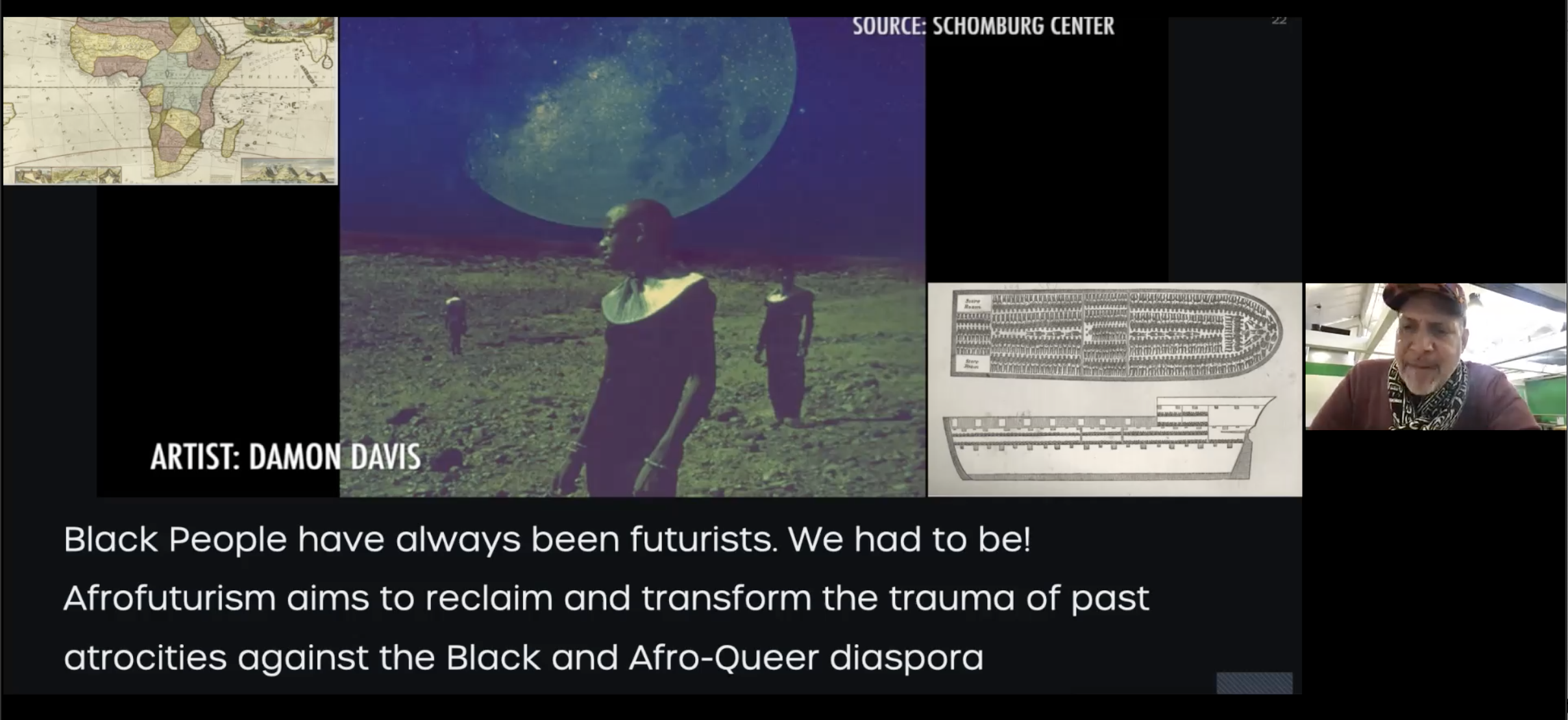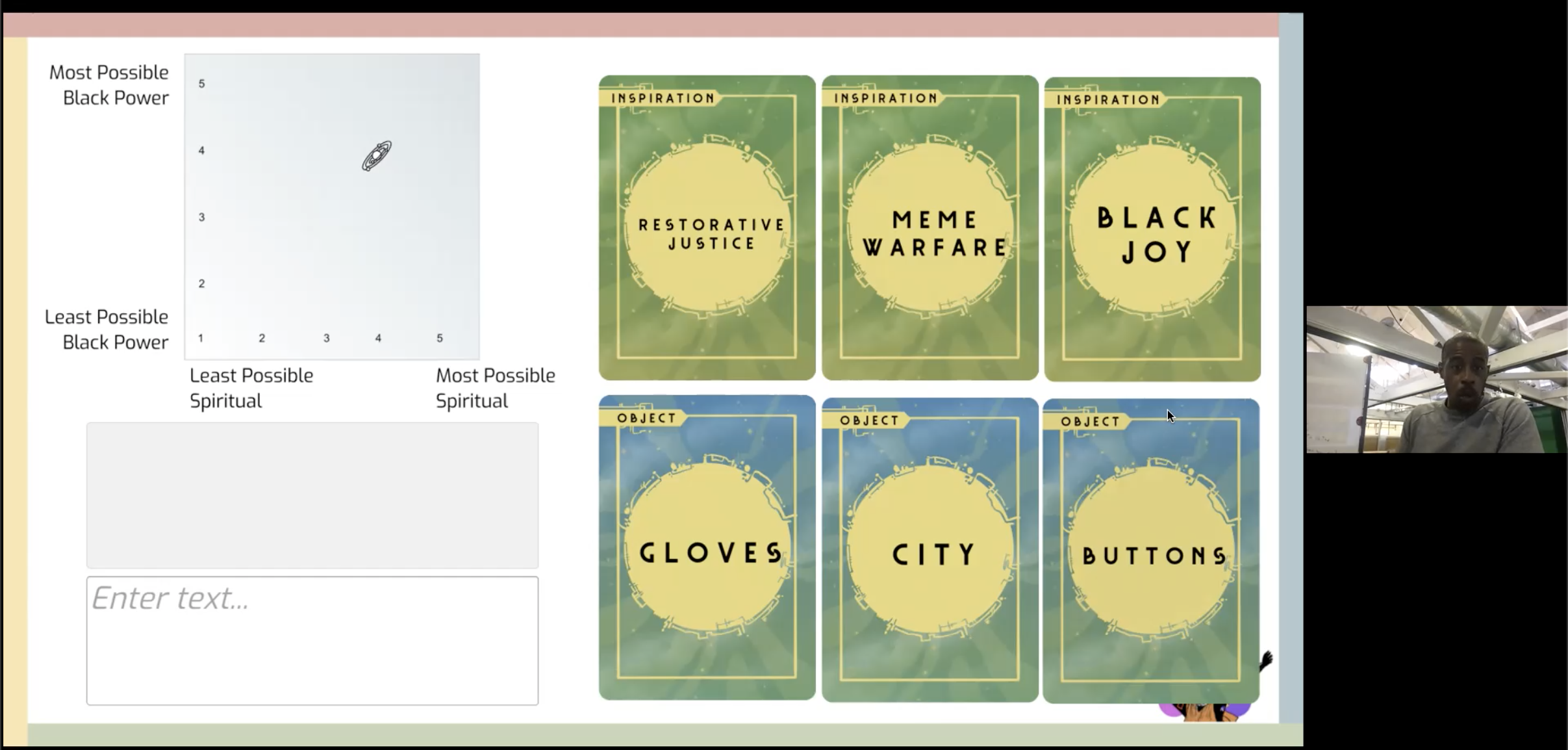Future Games
Jade Fabello
Dr. Lonny Brooks
What can Afrofuturism teach design thinking? The question may seem strange, but I had a chance to experience AfroRithms from the Future as part of the Spartan Studios course I’m teaching with John Monberg and David Sheridan. Spartan Studios courses tie together “human-centered design methods and curricular reform” to give students a chance to design and implement “creative solutions to real, identified problems” across the community. Our course is focused on placemaking concerns connected to a developer’s hope for encouraging new development on the Eastside of Lansing and ways to broaden the appeal of the Lansing Makers Network. John and David have combined their classes on writing (David) and web design (John) to create teams using our partners' goals as jumping-off points to design thinking projects.
Ahmed Best talking about Worldbuilding
My contribution has been to talk about how Afrofuturism can intersect and change the decision-making as the students imagine ways to develop a community or broaden the appeal of a maker space. I ask the students to think differently and challenge their assumptions in this endeavor. This same idea is central to the visit from Afrorithms team. AfroRithms from the Future is a design thinking game that uses a collaborative, design thinking, storytelling approach to center Black and BIPOC perspectives. In practice, the game is inspired by transformative ideas that emphasize support and care in a culture of collective concern. The mechanic to achieving this asks the participants to define concepts within the broad framework. In our session, our group defined what “spiritualism” or “individualism” means and then built a world around the definition with inspirations and objects like the ones above carrying out the process. The effect is transformative because it reminds the participants how much power they have to change their world. The process allows the participants to think through how individuals and institutions can interact to get different outcomes.
This element of Afrofuturism as a transformative practice is perhaps one of the most important things to consider as we move forward. We know that speculative practice can be transformative. The challenge is to allow the complex understanding of Afrofuturism we can articulate filter into the everyday practice people understand. Games are one way to do this, but we will need a whole set of tools to achieve the transformation we want to see.



